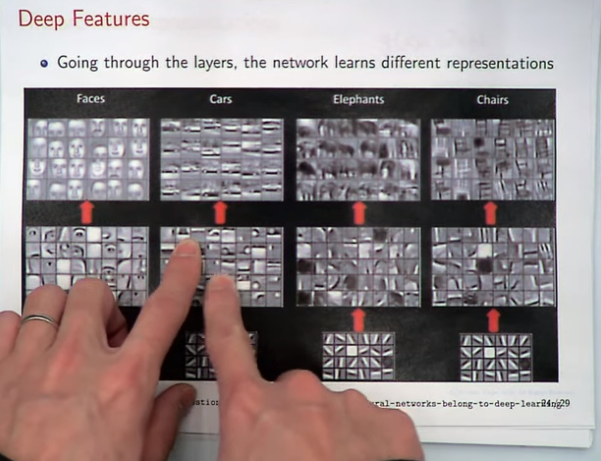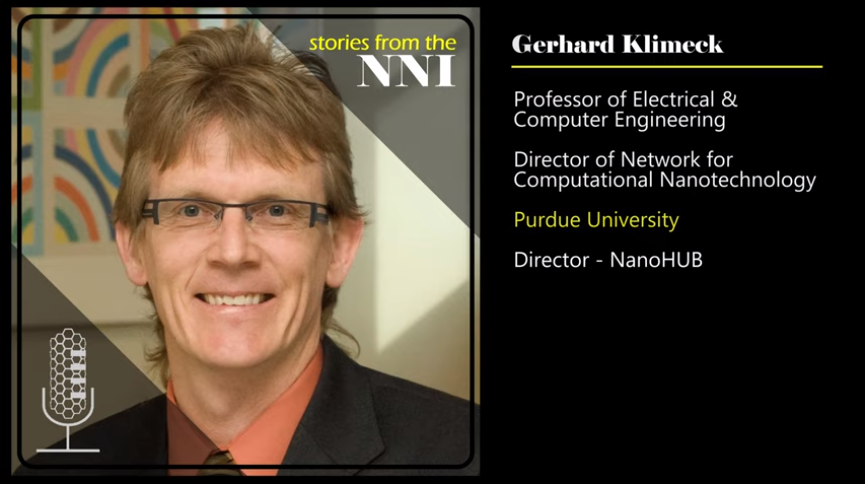|
Issue 40
Free Machine Learning Course on nanoHUB
Jumpstart your understanding of machine learning with this free online course: Machine Learning I.
Learn the mathematical background, classification methods, how to handle uncertainty, and learning theory. Some basic Python knowledge is recommended.
The course is taught by Stanley H. Chan, an assistant professor in the School of Electrical and Computer Engineering and the Department of Statistics at Purdue University.
Get started → Happy 100 to nanoHUB!
nanoHUB's h-index recently surpassed 100.
nanoHUB tracks both the number of papers in the literature that reference nanoHUB directly and the number of times those papers have each been cited. An h-index can then be determined for nanoHUB-related papers and compared to both typical young researchers and high-achieving researchers, such as members of the U.S. National Academy of Engineering.
An average researcher is expected to have an h-index roughly equal to the number of years since he or she has completed their graduate studies. Our h-index plots indicate that nanoHUB collectively compares favorably to high-level researchers. Stories from the NNI: A Conversation with Gerhard Klimeck
In this episode of Stories from the NNI, Lisa Friedersdorf, Director of the National Nanotechnology Coordination Office, speaks with Gerhard Klimeck, Professor of Electrical and Computer Engineering at Purdue University and Director of nanoHUB, about the online platform that shares modeling and simulation tools with a wide variety of users.
Watch the video →
Upcoming Events
Nano Curriculum Materials I - NACK Network
When:Four Friday sessions, 11 a.m. - 4 p.m. ET, March/April 2020 (3/20, 3/27, 4/3, 4/17)
Where: Online
A series of two workshops, the Nano Curriculum Materials Workshops (formerly known as our “Nanotechnology Course Resource Workshops” and “Train the Trainer” Workshops) were created to provide faculty with:
- Resources (labs, presentations, and more)
- Guidance to effectively teach undergraduate nanotechnology courses
Website: Online registration
ICANM2020: 8th International Conference & Exhibition on Advanced & Nano Materials
When:
August 24-26, 2020
Where: Ottawa, Canada
The 8th International Conference & Exhibition on Advanced & Nano Materials (ICANM2020) will take place from August 24 to 26 in Ottawa, Canada. This conference offers the unique opportunity to share your research work and refresh your knowledge. It also provides an excellent platform to meet existing colleagues and to greet new delegates.
This highly interactive conference and exposition are designed to promote information exchange among scientists, technologists, engineers, entrepreneurs, and exhibitors involved in materials science, specifically in the area of Advanced and Nano materials.
Website: ICANM 2020 conference

New Resources
Data science and machine learning are playing increasingly important role in science and engineering and materials science and engineering is not an exception. This online tool provides examples of the use of these tools in the field of materials science using Jupyter notebooks. The notebooks contain step by step explanations of the activities and live code, that can be modified by the users for hands-on learning. The initial set of tutorials focus on: i) data query, organization and visualization, ii) developing a simple model using linear regression to explore correlations between materials properties, and iii) neural network models trained to predict materials properties from basic element properties. Suggested activities are included in the Jupyter notebooks.
The Jupyter Notebooks in this tool implement methods developed by Citrine Informatics for materials design. Users can modify the notebooks to explore different models, try new ideas and adapt them for their own problems.
Flexible electronics hold great promise for biomedical application due to, among other factors, their flexibility and conformability. To improve these characteristics, reducing the thickness of the device is desirable. This presentation discusses the development of ultra-flexible and lightweight organic electronics and photonics devices, including transistors, biopotential sensors, and light absorbing and emitting devices, that are just few microns thick. Dr. Tomoyuki Yokota will present the application of these ultra-flexible organic electronics.
The National Nanotechnology Coordinated Infrastructure (NNCI) has posted a number of new teaching materials that are appropriate for undergraduate and K-12 classrooms. These resources include topics such as Wave Motion and Power Loss, Waveguides, Water Filtration, Ethical Issues in Nanotechnology, and more.
|





